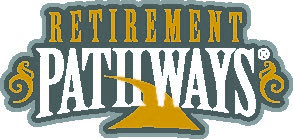SUBSCRIBE
Enter your Name and Email address to get
the newsletter delivered to your inbox.
Please include name of person that directed you to my online newsletter so I can thank them personally.


Dianne Williams Wildt, MBA
Certified Retirement Counselor®
Since 1983 in the financial services and investment industry
Retirement Pathways, Inc.
4500 Bowling Blvd., Suite 100
Louisville, KY 40207
Phone: 502-797-1258
Email: dianne@retirementpathways.com
Website: www.retirementpathways.com

If one of your estate planning goals is to ensure assets remain in your family, an inheritance trust may be an option to consider. Leaving assets in a trust allows your children to keep inherited assets separate from marital assets and protects assets from creditors during financial hardship.
You can transfer assets to the trust throughout your lifetime, and you’ll be able to name a beneficiary — often a grandchild — to receive any assets remaining in the trust when your child dies. You can also appoint a trustee, possibly from among your other children, to manage the assets for a minor grandchild at the death of a parent.
As an example, suppose you own a lake house that’s been in your family for a couple of generations. Assets that pass through an inheritance trust are not considered joint marital assets and, therefore, are protected if your child and a spouse divorce. The lake house stays with your blood relatives, since any assets remaining in the trust are distributed to your grandchildren or your other children when your child dies.
Your financial and estate planning professional can help you determine if an inheritance trust could complement your estate plans.
Enter your Name and Email address to get
the newsletter delivered to your inbox.
Please include name of person that directed you to my online newsletter so I can thank them personally.
Enter your Name, Email Address and a short message. We'll respond to you as soon as possible.
Investment advisory services offered through American Capital Management, Inc., a State Registered Investment Advisor. Retirement Pathways, Inc. is independent of American Capital Management, Inc.
Retirement Pathways, Inc. and LTM Marketing Specialists LLC are unrelated companies. This publication was prepared for the publication’s provider by LTM Client Marketing, an unrelated third party. Articles are not written or produced by the named representative.
The information and opinions contained in this web site are obtained from sources believed to be reliable, but their accuracy cannot be guaranteed. The publishers assume no responsibility for errors and omissions or for any damages resulting from the use of the published information. This web site is published with the understanding that it does not render legal, accounting, financial, or other professional advice. Whole or partial reproduction of this web site is forbidden without the written permission of the publisher.